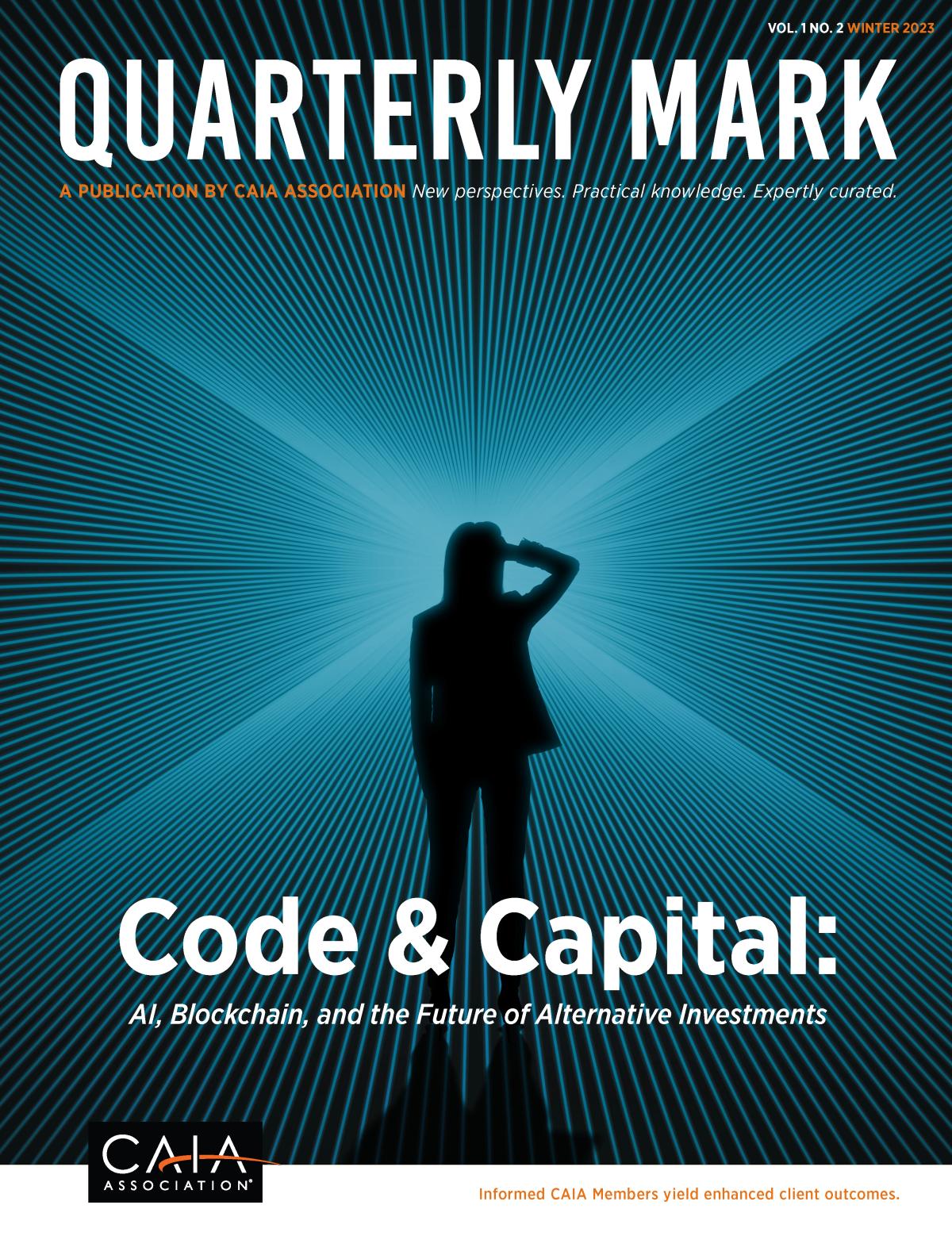By John L. Bowman, CFA, President, CAIA Association
Transformative technologies largely follow a familiar pattern: 1) Fervor, as hype outpaces sensibility, gobs of VC money pours in, and retail narratives take on grandiose conclusions; 2) Rationalization, as reality kicks in, pretenders and nefarious actors are exposed, and valuations reset aggressively; and 3) Reconciliation, as sustainable use cases crystallize, and revenue and profit models emerge.
In the last half-century, personal computing, the internet, and mobile computing have all exhibited this playbook. If an investor has been around for more than a minute, they have the scars and residual skepticism to prove it. Artificial intelligence and blockchain technology are no exception and CAIA was eager to devote the Winter 2023 issue of Quarterly Mark to the potential disruption and opportunity these two forces represent for both investing and our broader society.
With the recent generational collision of Nvidia’s processing innovation and OpenAI’s consumer interface, ChatGPT, artificial intelligence has exploded into our lexicon and onto the global scene. With archaic backward-looking uses such as pattern recognition and sentiment analysis giving way to robust predictive analytics and natural language processing, asset management firms are examining what this means for operating efficiencies, risk management, and investment return enhancement. Data was never the “new oil” as it is neither scarce nor valuable without insight and manipulation, but we may be beginning to stumble on the apparatus to unlock its power. Sustainability and ESG information, perhaps the most unstructured and dislocated data sets of all, are a particularly exciting area for employing these tools. That said, profound ethical and moral questions still linger over these developments, as the recent OpenAI board kerfuffle prominently illustrated.
While disproportional attention and rancor seem to be unnecessarily distracted with cryptocurrency applications, the real story has always been the underlying cryptographic technology. As Bloomberg columnist Matt Levine argued in his iconic Businessweek issue devoted to crypto, our lives are largely dependent on various fragmented and proprietary databases — medical records, property titles, and banking information that make them cumbersome to store, access, and transfer. Blockchain technology effectively serves as a decentralized super-computer that offers convenient and secure solutions for this challenge that could reshape our social fabric and the financial services industry. Digital tokens (currencies or not) stored on a blockchain represent immutable ownership stakes; a technology already being applied to money market funds (Franklin Templeton), private capital funds (KKR and Hamilton Lane), and even luxury Manhattan condo development.
While we may disagree on what stage these technologies are in or whom are the ultimate beneficiaries, one thing that is abundantly clear, the pace of change is unpredictable and unparalleled.
Access to the Winter 2023 issue of Quarterly Mark is available to CAIA Members here.




